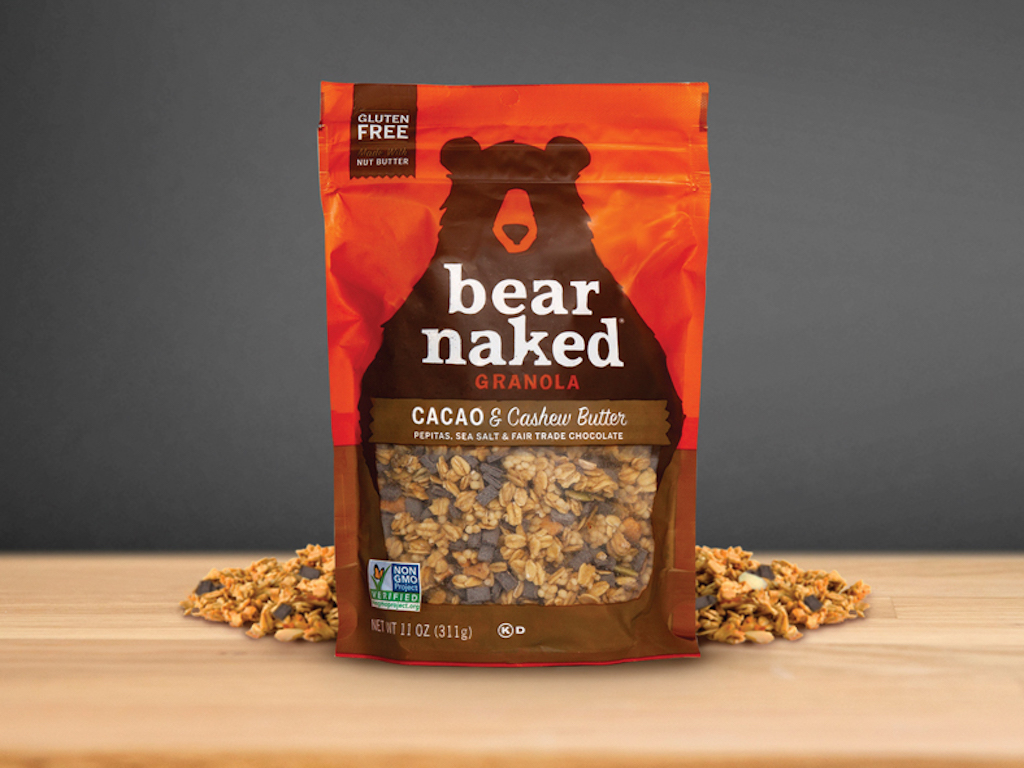3 Mins Read
American multinational food manufacturer Kellogg Company has just revealed its first fully recyclable cereal pouch for granola sold under its Bear Naked Inc. brand. Unlike most types of plastic zipper pouch packaging sold across mainstream commercial brands, Kellogg’s new stand-up pouch is the first that is made from 100% recyclable materials that consumers can easily drop-off across 18,000 retail locations in the United States. The move comes as a number of major global food companies in recent years have vowed to take action on plastic waste given consumer pressure.
Kellogg’s has just released its new stand-up barrier pouch packaging that is fully recyclable. After 18 months in the making, it has just been rolled out through 13 product lines under Kellogg’s Bear Naked granola brand, and will be available nationwide in the United States. This marks a major improvement of the recyclability of packaging, as most plastic pouches tend to be notoriously difficult to recycle.
The majority of commercial brands on the market use pouches made from a multi-layered material composed of a mix of plastics, aluminium foil and films, which make it nearly impossible to extract the different ingredients for recycling. Zippers and resealable parts of the bag are an additional problem in terms of waste, as they are usually made from non-recyclable products. Altogether, commercial product packaging makes up nearly a third of all landfilled waste, which is either left to leach contaminants into the soil or sent to incinerators where more harmful greenhouse gases are released into the atmosphere.
Kellogg’s new packaging will remove the inefficiencies and inconvenience of trying to recycle its pouches. Instead of having multilayers of PET and polyethylene film, the Bear Naked pouches are made from mono-material PE with ethylene vinyl alcohol barrier and are 100% recyclable. The entire pouch – including its film structures – can simply be brought back to drop-off locations across 18,000 retailers in the United States.
The company’s lead packaging designer Shannon Moore told Plastics Today that developing the fully recyclable resealable pouch required considering multiple aspects, from “understanding your consumers’ needs, the level of understanding they have around sustainable packaging” to “what your vendor partner capabilities are” and the recycling infrastructure available in the country.
This isn’t the first time that a major brand has taken strides to improve the recyclability of product packaging in recent years, given the significant demand from consumers shaken by the environmental devastation caused by our single-use convenience culture. Recently, Cadbury began trialling their first-ever 100% recyclable paper packaging on its Energy chocolate bars, which is made out of a fully-sealed and sustainably-sourced paper material that does not contain any laminates, foils or plastics. In September last year, Nestlé Japan announced that they will launch recyclable paper packaging for KitKats, which comes with instructions to fold origami cranes.
Other major food manufacturers have chosen to up its sustainability credentials by shifting away from single-use packaging altogether. Since Franco-US-based waste management company TerraCycle launched their circular delivery startup Loop in 2019, a number of brands have partnered up to offer reusable and returnable packaging to customers, such as Nestlé-owned ice cream Häagen-Dazs in a steel container, Nature Path’s granola in glass jars and Tide detergent in a reusable bottle. Loop’s success has paved the way for international expansion of their online services in Japan and Australia.
Faced with a planet depleted of its resources and consumers who are increasingly attuned to the climate crisis, companies are left with little choice but to innovate circular packaging solutions. Commenting on this trend, TerraCycle CEO Tom Szazky told Harvard Business Review that businesses that will survive are those “taking these issues seriously and making the difficult decisions that may negatively impact the short term but lay the foundation to be relevant in the long term.”
Lead image courtesy of Kellogg’s / Bear Naked Inc.




